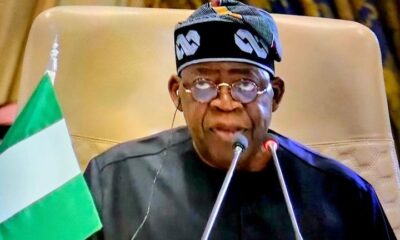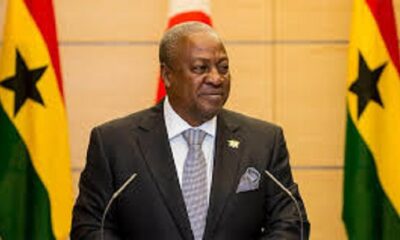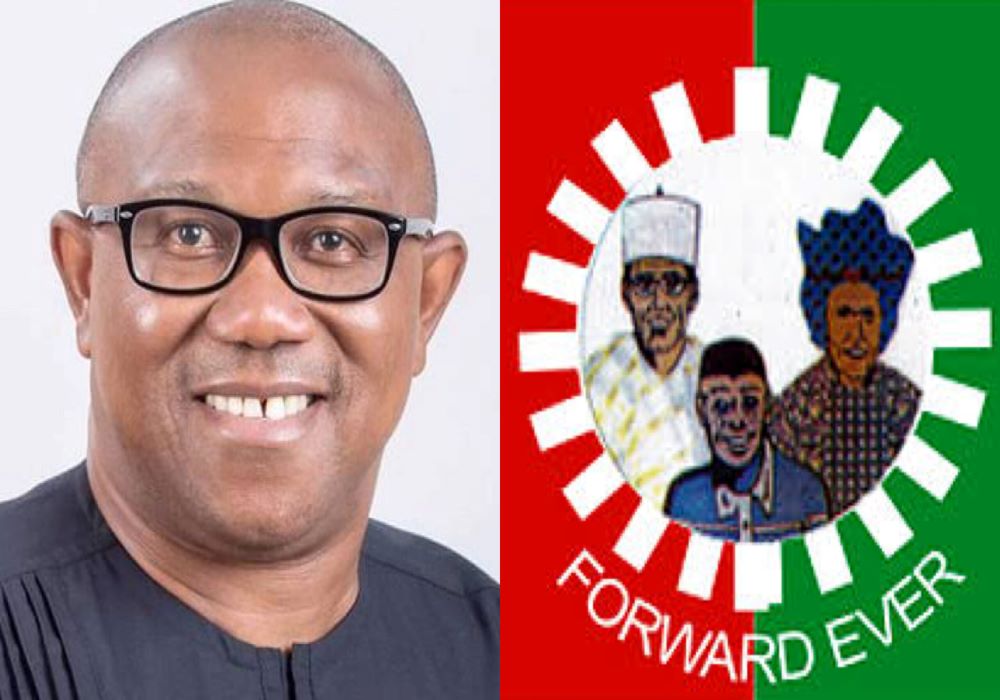International News
Ghana Risks Government Shutdown Amid Budget Impasse
Ghana’s parliament is unlikely to pass a provisional budget ahead of the December 7 general elections, raising concerns of an unprecedented government shutdown in early 2024.
The delay comes as the West African nation prepares to elect a successor to President Nana Akufo-Addo, whose two-term mandate ends in January.
Historically, a provisional budget is passed in November during election years to ensure the government operates smoothly until the incoming administration takes office.
READ MORE: Tinubu, Ramphosa Co-Chair Bi-National Commission’s 11th Session
However, political gridlock and a legal battle over parliamentary majority have stalled progress this year.
“We risk a government shutdown or, at best, lean government spending from January,” said Seth Terkper, Ghana’s finance minister from 2013 to 2017, in an interview.
He warned that without a budget, the government might have to slash interest payments and funding for the transition process.
Parliament has been on indefinite break since October 23 due to a dispute over which of the two main political parties holds the majority of seats.
The Supreme Court ruled on November 12 that Speaker Alban Bagbin’s earlier declaration of the majority was unconstitutional.
Despite this, Bagbin has refused calls to reconvene parliament, arguing that it would disrupt the election campaigns.
“This situation is unprecedented,” said Patrick Yaw Boamah, chairman of parliament’s finance committee.
The Finance Ministry set a November 15 deadline for presenting the provisional budget, but no progress has been made.
With only weeks left before the end of the year, experts warn that Ghana’s economy, already under strain, could face severe disruptions if the impasse continues.
Ghana, the world’s second-largest cocoa producer, has not faced a budget failure in over three decades.
A government shutdown could disrupt essential services, including salary payments for public sector workers and interest obligations.
Labour unions are particularly concerned about the potential fallout.
“It’s a big problem,” said Joshua Ansah, head of the Trades Union Congress. “We hope they resolve it before January so it doesn’t affect salaries.”
International News
Niger Drops French, Declares Hausa As New National Language
In a bold move to redefine its national identity and sever ties with its colonial past, Niger’s ruling junta has officially adopted Hausa as the country’s national language, replacing French.
A new national charter, published in a special edition of the government’s official journal on March 31, stated: “The national language is Hausa” and “the working languages are English and French.”
READ MORE: Woodhall Capital Foundation Trains Nigeria’s Captains Of Industry
The decision is part of sweeping reforms introduced by the military government that took power in July 2023 after ousting President Mohamed Bazoum. Since then, the junta has taken deliberate steps to distance itself from France, including the expulsion of French troops and the renaming of streets and landmarks that bore French names.
Hausa is the most widely spoken language in Niger, particularly in the regions of Zinder, Maradi, and Tahoua. By contrast, French is spoken by only about 13 percent of the population—just over three million people in a country of 26 million.
The charter also designates nine other local languages—Zarma-Songhay, Fula, Kanuri, Gourmanche, Arabic and others—as the “spoken languages of Niger.”
The reforms stemmed from a national conference held in February, during which the junta was granted broader powers, including a five-year extension for General Abdourahamane Tiani to remain as head of state.
Niger, along with Mali and Burkina Faso—also under military rule—recently withdrew from the Organisation Internationale de la Francophonie (OIF), a cultural and political body representing French-speaking countries.
International News
Massive 7.7 Magnitude Earthquake Rocks Myanmar, Shakes Southeast Asia
A powerful 7.7-magnitude earthquake struck central Myanmar on Friday, shaking the region and sending tremors as far as Thailand and China.
The quake’s epicenter was located in the Sagaing region, near Mandalay, Myanmar’s second-largest city, home to around one million people and renowned for its historic temple complexes.
Panic erupted as buildings swayed and dust filled the air.
READ ALSO: Powerful 6.8-Magnitude Earthquake Hits China, Dozens Killed
In Mandalay, videos shared online showed terrified residents rushing out of residential towers while traffic came to a sudden halt.
Reports indicate that a major bridge spanning the Irrawaddy River collapsed into the water in a cloud of dust and debris.
The quake was felt as far as Bangkok, Thailand’s capital, where video footage showed a partially constructed building in Chatuchak Park crumbling to the ground.
Thai authorities reported that 43 people were trapped in the wreckage, while seven others sustained injuries.
In Chiang Mai, a resident described feeling the tremors for about ten seconds before fleeing into the streets.
In Myanmar’s commercial hub, Yangon—about 380 miles from the epicenter—residents also experienced the powerful shaking.
One resident recalled, “We felt the quake for about a minute, then ran out of the building.
It was very sudden and very strong.” Another noted that phone networks in the city, home to around 8 million people, briefly went down but were later restored.
Myanmar, one of Asia’s poorest nations, is already grappling with the effects of a brutal civil war sparked by a military coup over four years ago.
The conflict has devastated the economy, and the country remains ill-equipped to handle a major natural disaster of this scale.
The Sagaing region, where the earthquake struck, is a war zone with multiple factions—including the ruling junta, pro-military militias, and rebel groups—fighting for control.
The ongoing violence has made travel by road or river extremely dangerous, posing significant challenges to delivering emergency aid and assessing the full extent of the damage.
Tremors were also felt in China’s southwestern Yunnan province, underscoring the quake’s intensity.
Authorities across the region are now assessing the situation, with emergency teams mobilizing in both Myanmar and Thailand.
International News
Samsung Electronics Co-CEO, Han Jong-hee Dies At 63

Han Jong-hee, co-CEO of Samsung Electronics and a driving force behind the company’s dominance in the global television market, has died of a heart attack at the age of 63, the company confirmed on Tuesday.
“He died from cardiac arrest today,” a Samsung spokesperson stated, adding that Han is survived by his wife and three children.
Having joined the company in 1988, Han played a significant role in shaping Samsung’s television business.
READ MORE: Samsung Reports Worst Quarterly Profits In 14 Years
His leadership was instrumental in the launch and success of the company’s high-end LED TVs, which helped establish Samsung as a global leader in the industry.
“Han was central in the unveiling of Samsung’s world-class LED TVs,” the company noted in a biography published earlier this month. “His numerous other innovations enabled the company to continually demonstrate its technology leadership.”
His efforts ensured that Samsung maintained its position as a dominant force in the global television market.
Han’s death comes at a time when Samsung Electronics is grappling with challenges in the AI chip sector.
The company has been facing difficulties in meeting Nvidia’s standards, while its South Korean competitor, SK Hynix, has emerged as the leading supplier of high-bandwidth memory (HBM) chips for Nvidia’s AI processors.
Chairman Lee Jae-yong recently underscored the urgency of the situation, urging Samsung to adopt a “do-or-die” approach to overcome the growing challenges in the AI industry.
Last October, the company acknowledged it was facing a “crisis,” citing concerns over its “fundamental technological competitiveness and the future of the company.”



















